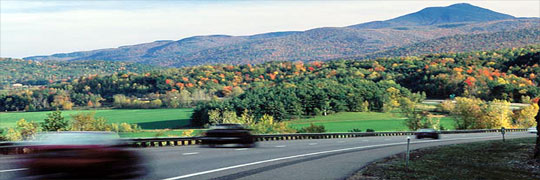 Riots are breaking out around the world in Haiti and Egypt over the high prices of food. High fuel prices are also influencing violence in impoverished nations, while also leading to an increase in the use of ethanol and biodiesel in Europe, the U.S., and other wealthier nations. With the increased demand for ethanol and biodiesel, coming predominantly from food crops, a web of high food and fuel prices is causing complications. The price of corn in the U.S. has more than doubled in the last year driven partly by the demand for ethanol. World Bank President Robert Zoellick says biofuels are a major factor in the spike of food prices. [Source: NPR]
Riots are breaking out around the world in Haiti and Egypt over the high prices of food. High fuel prices are also influencing violence in impoverished nations, while also leading to an increase in the use of ethanol and biodiesel in Europe, the U.S., and other wealthier nations. With the increased demand for ethanol and biodiesel, coming predominantly from food crops, a web of high food and fuel prices is causing complications. The price of corn in the U.S. has more than doubled in the last year driven partly by the demand for ethanol. World Bank President Robert Zoellick says biofuels are a major factor in the spike of food prices. [Source: NPR]
Food or Fuel?
 Riots are breaking out around the world in Haiti and Egypt over the high prices of food. High fuel prices are also influencing violence in impoverished nations, while also leading to an increase in the use of ethanol and biodiesel in Europe, the U.S., and other wealthier nations. With the increased demand for ethanol and biodiesel, coming predominantly from food crops, a web of high food and fuel prices is causing complications. The price of corn in the U.S. has more than doubled in the last year driven partly by the demand for ethanol. World Bank President Robert Zoellick says biofuels are a major factor in the spike of food prices. [Source: NPR]
Riots are breaking out around the world in Haiti and Egypt over the high prices of food. High fuel prices are also influencing violence in impoverished nations, while also leading to an increase in the use of ethanol and biodiesel in Europe, the U.S., and other wealthier nations. With the increased demand for ethanol and biodiesel, coming predominantly from food crops, a web of high food and fuel prices is causing complications. The price of corn in the U.S. has more than doubled in the last year driven partly by the demand for ethanol. World Bank President Robert Zoellick says biofuels are a major factor in the spike of food prices. [Source: NPR]
Subscribe to:
Post Comments (Atom)

2 comments:
I like what Elaine and you and the TRC come up with for news stories. You do a really good job. However, I'd like to see more commentary/analysis on this food versus fuel story. For example, the headline of the NPR story is "World Bank Chief: Biofuels Boosting Food Prices". Now, it is arguably the case that a wide variety of factors (e.g., the drought in Australia; rising meat consumption; HIGH energy costs; increased corn production for ethanol; and many others) are leading to food problems.
But the headline and the general gist of several stories that have come out recently is that biofuels are the main problem. It is important to point out that what Vermont is trying to do with biofuels is qualitatively different than industrial scale biofuels. I'm concerned that the broad brush strokes of these stories are obscuring that fact.
I would most certainly agree with you. I think past newsletters have tried to convey the point that although some biofuels may be causing a problem not all biofuels are inherently bad.
When information first hit the mainstream media attacking biofuels, my goal was to make sure people in Vermont knew/know that not all biofuels are in the same boat and that on a local scale biofuels could have a very positive impact.
Post a Comment